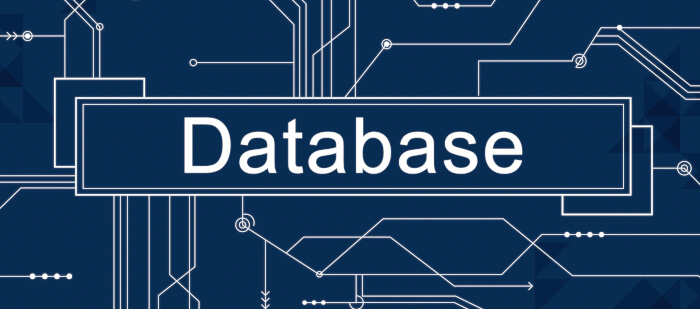Apache Kudu is a distributed data storage engine that makes fast analytics on fast and changing data easy.
Kudu runs on commodity hardware, is horizontally scalable, and supports highly available operation.
This is free and open source software.
Features include:
- Fast processing of OLAP workloads.
- Strong but flexible consistency model, allowing you to choose consistency requirements on a per-request basis, including the option for strict-serializable consistency.
- Structured data model.
- Strong performance for running sequential and random workloads simultaneously.
- Tight integration with Apache Impala, making it a good, mutable alternative to using HDFS with Apache Parquet.
- Integration with Apache NiFi and Apache Spark.
- Integration with Hive Metastore (HMS) and Apache Ranger to provide fine-grain authorization and access control.
- Authenticated and encrypted RPC communication.
- High availability: Tablet Servers and Masters use the Raft Consensus Algorithm, which ensures that as long as more than half the total number of tablet replicas is available, the tablet is available for reads and writes. For instance, if 2 out of 3 replicas (or 3 out of 5 replicas, etc.) are available, the tablet is available. Reads can be serviced by read-only follower tablet replicas, even in the event of a leader replica’s failure.
- Automatic fault detection and self-healing: to keep data highly available, the system detects failed tablet replicas and re-replicates data from available ones, so failed replicas are automatically replaced when enough Tablet Servers are available in the cluster.
- Location awareness (a.k.a. rack awareness) to keep the system available in case of correlated failures and allowing Kudu clusters to span over multiple availability zones.
- Logical backup (full and incremental) and restore.
- Multi-row transactions (only for INSERT/INSERT_IGNORE operations as of Kudu 1.15 release).
- Easy to administer and manage.
- Cross-platform support – runs under Linux and macOS.
Website: kudu.apache.org
Support:
Developer: The Apache Software Foundation
License: Apache License 2.0
Kudu is written in C++. Learn C++ with our recommended free books and free tutorials.
| Popular series | |
|---|---|
| The largest compilation of the best free and open source software in the universe. Each article is supplied with a legendary ratings chart helping you to make informed decisions. | |
| Hundreds of in-depth reviews offering our unbiased and expert opinion on software. We offer helpful and impartial information. | |
| The Big List of Active Linux Distros is a large compilation of actively developed Linux distributions. | |
| Replace proprietary software with open source alternatives: Google, Microsoft, Apple, Adobe, IBM, Autodesk, Oracle, Atlassian, Corel, Cisco, Intuit, and SAS. | |
| Awesome Free Linux Games Tools showcases a series of tools that making gaming on Linux a more pleasurable experience. This is a new series. | |
| Machine Learning explores practical applications of machine learning and deep learning from a Linux perspective. We've written reviews of more than 40 self-hosted apps. All are free and open source. | |
| New to Linux? Read our Linux for Starters series. We start right at the basics and teach you everything you need to know to get started with Linux. | |
| Alternatives to popular CLI tools showcases essential tools that are modern replacements for core Linux utilities. | |
| Essential Linux system tools focuses on small, indispensable utilities, useful for system administrators as well as regular users. | |
| Linux utilities to maximise your productivity. Small, indispensable tools, useful for anyone running a Linux machine. | |
| Surveys popular streaming services from a Linux perspective: Amazon Music Unlimited, Myuzi, Spotify, Deezer, Tidal. | |
| Saving Money with Linux looks at how you can reduce your energy bills running Linux. | |
| Home computers became commonplace in the 1980s. Emulate home computers including the Commodore 64, Amiga, Atari ST, ZX81, Amstrad CPC, and ZX Spectrum. | |
| Now and Then examines how promising open source software fared over the years. It can be a bumpy ride. | |
| Linux at Home looks at a range of home activities where Linux can play its part, making the most of our time at home, keeping active and engaged. | |
| Linux Candy reveals the lighter side of Linux. Have some fun and escape from the daily drudgery. | |
| Getting Started with Docker helps you master Docker, a set of platform as a service products that delivers software in packages called containers. | |
| Best Free Android Apps. We showcase free Android apps that are definitely worth downloading. There's a strict eligibility criteria for inclusion in this series. | |
| These best free books accelerate your learning of every programming language. Learn a new language today! | |
| These free tutorials offer the perfect tonic to our free programming books series. | |
| Linux Around The World showcases usergroups that are relevant to Linux enthusiasts. Great ways to meet up with fellow enthusiasts. | |
| Stars and Stripes is an occasional series looking at the impact of Linux in the USA. | |
